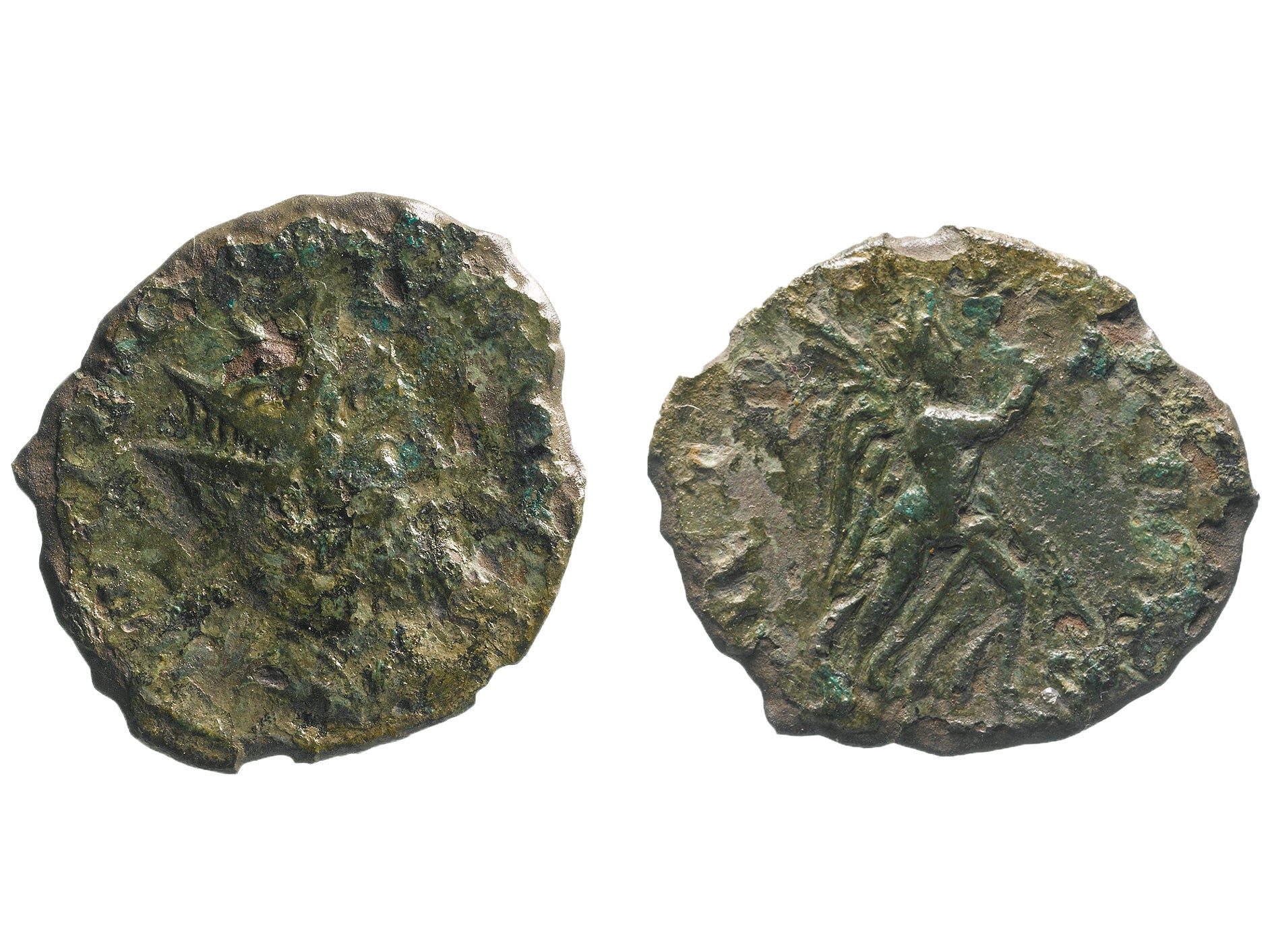‘Incredibly rare’ Roman coin found during roadworks
‘There’s every chance Laelianus had been killed by the time this coin arrived in Cambridgeshire’

Your support helps us to tell the story
From reproductive rights to climate change to Big Tech, The Independent is on the ground when the story is developing. Whether it's investigating the financials of Elon Musk's pro-Trump PAC or producing our latest documentary, 'The A Word', which shines a light on the American women fighting for reproductive rights, we know how important it is to parse out the facts from the messaging.
At such a critical moment in US history, we need reporters on the ground. Your donation allows us to keep sending journalists to speak to both sides of the story.
The Independent is trusted by Americans across the entire political spectrum. And unlike many other quality news outlets, we choose not to lock Americans out of our reporting and analysis with paywalls. We believe quality journalism should be available to everyone, paid for by those who can afford it.
Your support makes all the difference.An “incredibly rare” coin depicting a breakaway Roman ruler has been unearthed during roadworks in Cambridgeshire.
The 1,800-year-old coin bearing Emperor Laelianus’s likeness was found in an ancient farmstead by archaeologists working on the overhaul of the A14 between Cambridge and Huntingdon.
It is only the second such coin discovered in England and is so rare because Laelianus ruled for just two or three months. It shows the ill-fated leader wearing a radiate crown with the figure of Victory on the reverse.
“Roman emperors were very keen to mint coins,” said numismatist Julian Bowsher, from contractor Mola Headland Infrastructure. “Laelianus reigned for just two months which is barely enough time to do so. However, coins were struck in Mainz, Germania.
“The fact that one of these coins ever reached the shores of Britain demonstrates remarkable efficiency, and there’s every chance that Laelianus had been killed by the time this coin arrived in Cambridgeshire.”
Ulpius Cornelius Laelianus is believed to have been a military commander or governor in Germania in the mid-to-late third century, at the time of the breakaway Gallic Empire which included Britain.
He ruled only briefly after usurping power from the previous emperor, Postumus, in AD 269. Emperor Aurelian reconquered the Gallic regions about five years later.
Dr Steve Sherlock, Highways England’s head of archaeology for the A14 project, said: “Discoveries of this kind are incredibly rare.
“This is one of many coins that we’ve found on this exciting project, but to find one, where there are only two known from excavations in this country that portray this particular emperor, really is quite significant.”
Older items have been uncovered by A14 workers, including a Roman-era coin dating to 57BC, which Highways England said was minted by the Ambiani tribe in what is now France to help fund the resistance to Julius Caesar.
Woolly mammoth bones were also found last year which are thought to be more than 100,000 years old.
Join our commenting forum
Join thought-provoking conversations, follow other Independent readers and see their replies
Comments